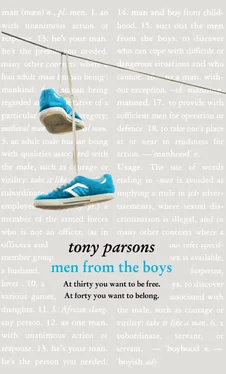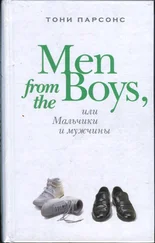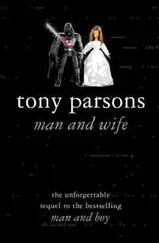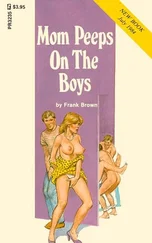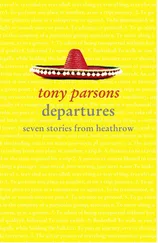I was his father. And if his mother wasn’t around, then I could still only be his father. If you lose your right arm, does your left arm become both your right and left arm? No, it doesn’t. It’s still just your left arm. And you get on with it. Both his mother and his father? Hardly. It took everything I had to pull off being his dad.
‘You all right?’ he said, wiping his hands on the dishcloth, looking at me sideways.
‘Fine,’ I said. ‘All good.’
And still I did not mention his mother.
Joni appeared. At seven, her footsteps were so light that, if she was not rushing somewhere, or talking, or singing, you often did not hear her coming. You turned around and she was just there. She shuffled slowly towards the table, dressed for school but still more asleep than awake.
She yawned widely. ‘I don’t want to eat anything today,’ she said.
‘You have to eat something,’ I said.
She cocked a leg and hauled herself up on her chair, like a cowboy getting on his horse.
‘But look,’ she said.
She opened her mouth and as Pat and I bent to peer inside, she began to manoeuvre one of her front teeth with her tongue. It was so loose that she could get it horizontal.
She closed her mouth. Her eyes shone with tears. Her chin wobbled.
Pat went off to the kitchen and I sat down at the table. ‘Joni,’ I said, but she held up her hands, cutting me off, pleading for understanding.
‘Cereal hurts my gums,’ she said, waving her hands. ‘Not just Cookie Crisps. All of them.’
I touched her arm. Upstairs I could hear Cyd and Peggy laughing outside the bathroom door. I groped for the correct parental soundbite.
‘Breakfast is, er, the most important meal of the morning,’ I reminded her, but my daughter looked away with frosty contempt, furiously worrying at her wonky tooth with the tip of her tongue.
‘There you go,’ Pat said.
He placed a sandwich in front of Joni. Two slices of lightly toasted white bread with the crusts removed, the chemical yellow of processed cheese sticking out of the sides like a toxic spill. Cut into triangles.
Her favourite.
Pat returned to the kitchen. I picked up the newspaper. Joni lifted the sandwich in both hands and began to eat.
Here’s a good one for the Lateral Thinking Club – if a marriage produces a great child, then can that marriage ever be said to have failed?
If the marriage produces some girl or boy who just by existing makes this world a better place, then has that marriage failed just because Mum and Dad have split up? Is the only criterion of a successful marriage staying together? Is that really all it takes? Hanging in there? Butching it out?
Does my friend Marty Mann have a successful marriage because it has lasted for years? Does it matter that he likes his Latvian lap dancers two at a time before going home to his wife? Has he got a successful marriage because it remained untouched by the divorce courts?
If a woman and a man abandon their wedding vows and run eagerly through all the usual hateful clichés – saying hurtful things, sleeping with other people, cutting up clothes, running off with the milkman – then is that a failed marriage?
Well, obviously. It’s a bloody disaster.
But still – I could not bring myself to call my union with my first wife a failed marriage. Despite everything. Despite crossing the border between love and hate and then going so far into alien territory that we could not even recognise each other.
Gina and I were young and in love. And then we were young and stupid, and getting everything wrong.
First me. Then both of us.
But a failed marriage? Never.
Not while there was the boy.
As the record came to an end, I looked at Marty’s eyes through the studio’s glass wall.
‘Line two,’ I said into the microphone, ‘Chris from Croydon.’ Marty’s fingers flew across the board, as natural as a fish in water, and the light on the mic in front of him went red.
Marty adjusted himself in his chair, and leaned into the mic as if he might snog it.
‘You’re with Marty Mann’s Clip Round the Ear live here on BBC Radio Two,’ Marty said, half-smiling. ‘Enjoying good sounds in bad times. Mmmm, I’m enjoying this ginger nut. Chris from Croydon – what’s on your mind, mate?’
‘I can’t go to the pictures any more, Marty. I just get too angry – angry at the sound of some dopey kid munching his lunch, and angry at the silly little gits – can I say gits? – who think they will disappear into a puff of smoke if they turn their Nokias off for ninety minutes, and angry at the yak-yak-yak of gibbering idiots – ’
‘Know what you mean, mate,’ Marty said, cutting him off. ‘They should be shot.’
‘Whitney Houston,’ I said, leaning forward. ‘“I Will Always Love You”.’
‘And now a song written by the great Dolly Parton,’ Marty said. He knew music. He was from that generation that had music at the centre of its universe. This wasn’t just a hit song from a Kevin Costner film to him. ‘Before all music started sounding like it was made from monosodium glutamate.’
This was the starting point for our show – nothing was as good as it used to be. You know, stuff like pop music, and the human race.
Whitney’s cut-glass yearning began and Marty gave me a thumbs-up as he whipped off his headphones. He barged open the door. ‘Four minutes thirty-seconds on Whitney,’ I said.
‘Great, I can pee slowly,’ he said. ‘What’s next?’
I consulted my notes. ‘Let’s broaden it out,’ I said. ‘Nonspecific anger. Rap about being angry about everything. Being angry with people who litter. Yet also angry with people who make you recycle. Angry about people who swear in front of children, angry at traffic wardens, angry at drivers who want to kill your kids.’
‘Those bastards in Smart cars,’ Marty said, as he kept moving.
‘People, really,’ I said, calling after him. ‘Feeling angry at people. Any kind of rudeness, finger wagging or ignorance. And then maybe go to a bit of Spandau Ballet.’
‘I can do that,’ he said, and then he was gone.
‘Two minutes forty on and we’re back live,’ said Josh, the Oxford graduate who ran our errands – the BBC was full of them, all these Oxbridge double-firsts chasing up wayward mini-cabs – and I could hear the nerves in his voice. But I just nodded. I knew that Marty would be back just as Whitney was disappearing from Kevin Costner’s life forever. We were not new to this.
Marty and I were back on radio now – a couple of old radio hams who had taken a beating on telly and crawled back to where we had begun. It happens to guys like us. In fact, I have often thought that it is the only thing that happens to guys like us. One day the telly ends. But we were making a go of it. A Clip Round the Ear was doing well – we had that glass ear awarded by our peers to prove it. Ratings were rising for a show that played baby boomer standards and boldly proclaimed that everything was getting worse.
Music. Manners. Mankind.
I watched Marty come out of the gents, clumsily fumbling with the buttons on his jeans – I know he was angry about there never being zips on jeans – and saw a couple of guests for the show next door do a double take. Since his golden years as the presenter of late-night, post-pub TV, he had put on a little weight and lost some of that famous carrot-topped thatch. But people still expected him to look as he did when he was interviewing Kurt Cobain.
‘What?’ he said.
‘Nothing,’ I said, and I felt an enormous pang of tenderness for him.
Being on television is a lot like dying young. You stay fixed in the public imagination as that earlier incarnation. Someone who interviews the young and thin Simon Le Bon – they do not grow old as we grow old. But every TV show comes to an end. And, as Marty was always quick to point out, even the true greats – David Frost, Michael Parkinson, Jonathan Ross – have their wilderness years, the time spent working in Australia or getting rat-faced in the Groucho Club, waiting for the call to come again.
Читать дальше
